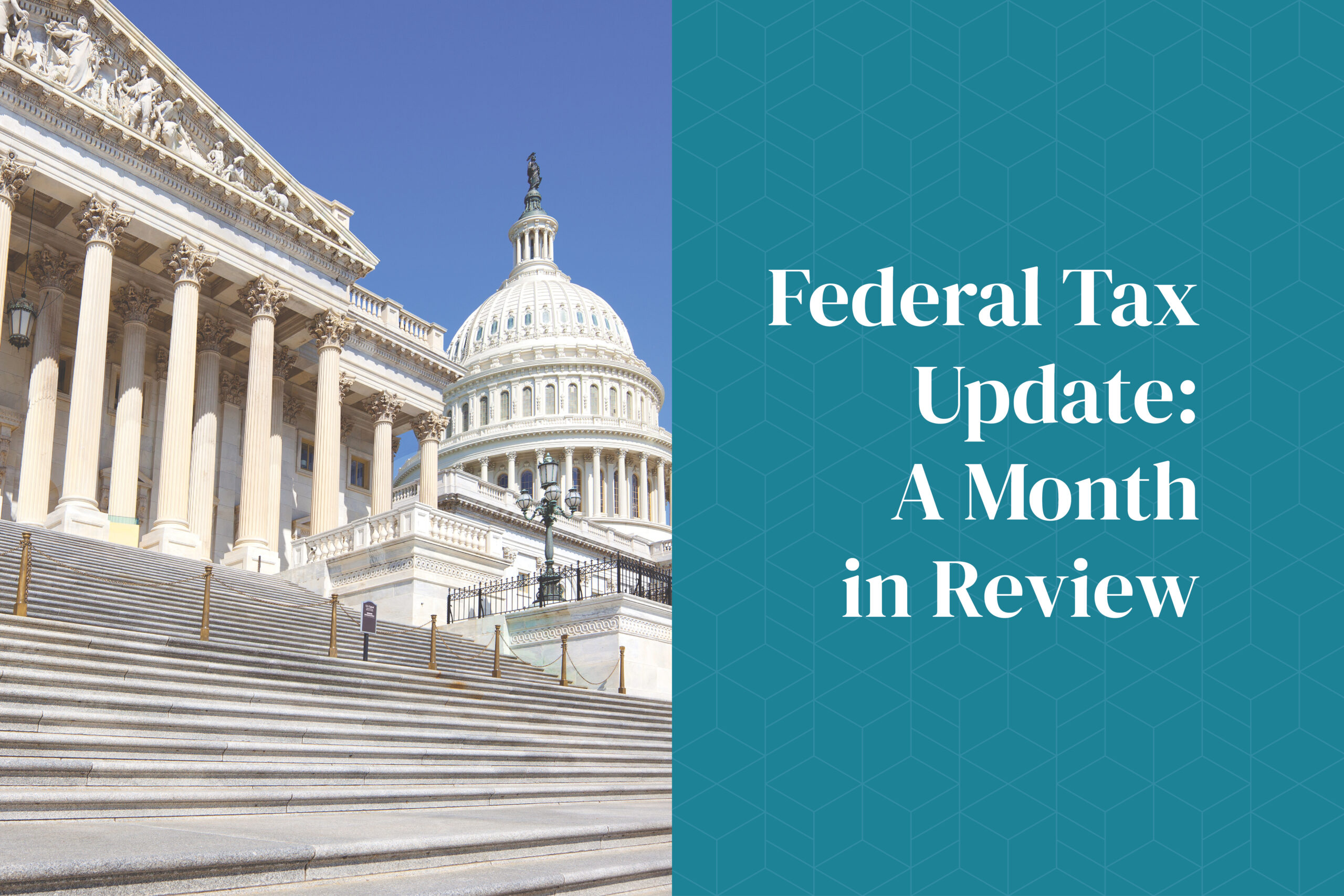November 3rd, 2025
October Federal Tax Update
Posted in: Tax Law Tagged: David S. De Jong
Author: David S. De Jong

INDIVIDUALS
In Potts v. Commissioner, TC Memo 2025-108, the Tax Court denied a theft loss deduction for an investment in a Turks and Caicos entity where the funds were not used as represented, the Court noting that a deduction requires a theft under local law and there was no written representation as to the use of funds and any oral promises were not rolled into the written agreement which superseded by its terms all prior representations.
In Beavis v. Harinck, 136 AFTR2d 2025- ___, the Federal Circuit Court of Appeals affirmed the U.S. Court of Federal Claims and denied a refund to retired airline pilots who paid FICA taxes on the present value of deferred compensation when earned though never received due to airline’s bankruptcy.
In Notice 2025-57, IRS indicated that it will require vehicle finance companies to report in 2025 only the interest paid by the borrower, leaving responsibility to the individual for determining eligibility for the car loan interest deduction that is scheduled to apply from 2025-2028.
BUSINESS
Final Regulations Under Code Section 263 provide guidance on the capitalization of interest expense when improving real properties.
In Charles G. Berwind Trust v. Commissioner, 136 AFTR2d 2025 -___, the Third Circuit Court of Appeals agreed with the Tax Court that a $31 million portion of a pre-merger settlement with a minority shareholder constituted interest per Code section 483 as a deferred payment under the merger plan.
In Berry v. Commissioner, TC Memo 2025-109, the Tax Court found that a married couple remained the owner of an S corporation despite the husband having stepped down as an officer and had to report the couple’s share of unreported income of the business.
In Community Worship Fellowship v. United States, 136 AFTR2d 2025 -____, the U.S. Court of Federal Claims agreed that IRS correctly revoked the 501(c)(3) status of a religious group which received over $1 million in donations over a 4-year period which was distributed mostly to members of a single family; the Court concluded that this was impermissible inurement.
In Fact Sheet 2025-7 IRS indicated that date of postmark controls whether an Employee Retention Credit claim was timely and that refunds for post – January 31, 2024 filings do not need to be returned.
PROCEDURE
Public Law 119, the Internal Revenue Service Math and Taxpayer Help Act, requires IRS on math error adjustments to provide a clear description of the error and the affected line(s) of the return.
In Garibyan v. Commissioner, TC Memo 2025-105, the Tax Court found reasonable cause for not imposing an accuracy penalty on a hospice care company despite large numbers of unsubstantiated deductions and unreported income determined using bank deposits, finding that the company relied on accounting professionals who put the business on accrual basis accounting confusing to an uneducated taxpayer.
On Kellum Resources v. Commissioner, Docket No. 2585-23, in an Order the Tax Court again ruled that civil fraud could be assessed without any taxpayer right to a jury trial in a matter involving a penalty related to conservation easements.
In United States v. Mehta, 136 AFTR2d 2025 – ___, a Florida Federal District Court found that a tax professional based on his knowledge of FBAR requirements necessarily acted willfully in failing to file the report.
In Leopard v. United States, 136 AFTR2d 2025-6171, the Court of Federal Claims denied a refund to an individual who filed an amended return reducing the gross receipts that had been previously shown on a Substitute for Return, setting forth that the claim was inadequate as no meaningful documentation was submitted with the refund suit.
In North Wall Holdings v. Commissioner, 165 TC No. 9, the Tax Court held that the statute of limitations did not stay open for good cause beyond the 150 days given for an individual partner to challenge TEFRA adjustments (the Tax Matters Partner had the sole right to challenge during the first 90 days).
In Avalon Home Health v. Commissioner, TC Memo 2025-107, the Tax Court, calling IRS actions which included a succession of four settlement officers “far from a model of good government”, remanded a Collection Due Process appeal for consideration of the taxpayer’s request for an installment agreement which bad been skipped over by IRS in successfully determining that the taxpayer had prior opportunity to challenge the liability on the merits.




